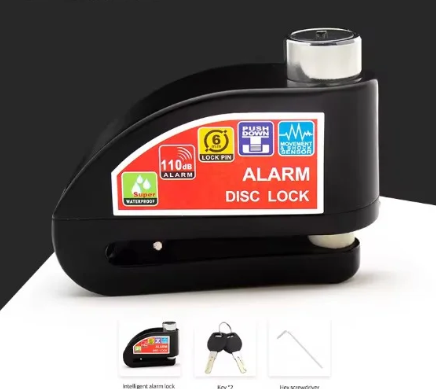The real estate industry has long been viewed as a stable and lucrative sector, attracting investors seeking consistent returns and long-term wealth accumulation. However, traditional real estate investment comes with inherent challenges, including high entry costs, illiquidity, bureaucratic processes, and a lack of transparency. With the advent of blockchain technology, these obstacles are being systematically dismantled through a process known as real estate tokenization. By digitizing ownership and enabling fractional investment, blockchain is redefining how investors interact with property markets, making real estate more accessible, efficient, and secure than ever before.
Understanding Real Estate Tokenization
Real estate tokenization refers to the process of converting ownership rights of a property into digital tokens on a blockchain. Each token represents a share of ownership, allowing investors to buy, sell, or trade these tokens similarly to other digital assets. This concept leverages blockchain’s decentralized ledger to record transactions transparently, reducing reliance on traditional intermediaries like brokers, banks, and legal firms. By dividing property into smaller, tradable units, tokenization lowers the financial barrier for investors, enabling broader participation across global markets.
Tokenization transforms both commercial and residential real estate. In commercial markets, large-scale properties such as office buildings, shopping centers, or industrial warehouses can be fractionalized, allowing multiple investors to share ownership. Residential tokenization empowers smaller investors to participate in high-value properties or real estate investment trusts (REITs) that were previously inaccessible due to capital constraints. By enabling fractional ownership, Real eatate tokenization democratizes real estate investment, opening doors for both seasoned investors and novices alike.
Key Benefits of Blockchain in Real Estate
1. Increased Liquidity
One of the biggest challenges in traditional real estate is illiquidity. Selling a property can take months or even years, tying up capital and limiting investor flexibility. Tokenization addresses this by creating digital assets that can be traded on blockchain-powered marketplaces. Investors can quickly buy or sell their property tokens, unlocking liquidity that was previously unattainable. This level of liquidity is particularly beneficial during market downturns, where traditional property sales may stagnate, but tokenized assets can still change hands efficiently.
2. Fractional Ownership
Tokenization enables fractional ownership, meaning investors no longer need to purchase an entire property to participate in the market. Instead, they can acquire a fraction of a property proportional to their investment. This approach diversifies risk, allowing investors to spread capital across multiple properties and markets rather than concentrating it in a single asset. Fractional ownership also opens up real estate investment to a global audience, as international investors can acquire tokens without dealing with local property regulations or high transaction costs.
3. Reduced Transaction Costs
Traditional real estate transactions involve numerous intermediaries, including brokers, legal advisors, banks, and title companies. These parties add layers of complexity and increase costs, often making property investment prohibitively expensive. Blockchain technology eliminates many of these intermediaries by enabling peer-to-peer transactions, smart contracts, and automated verification processes. Smart contracts, in particular, can automatically enforce terms of a sale, release funds, and transfer ownership once predefined conditions are met. This automation reduces legal fees, processing times, and administrative overhead, streamlining property transactions significantly.
4. Enhanced Transparency and Security
Blockchain’s decentralized ledger ensures that all transactions are recorded permanently, immutably, and publicly. This transparency reduces the risk of fraud, title disputes, and misrepresentation, providing investors with a reliable record of property ownership and transaction history. Security is further enhanced through cryptographic encryption, protecting both investor funds and property data from cyber threats. For regulators and stakeholders, blockchain offers verifiable proof of ownership and compliance, facilitating trust in an industry historically plagued by opacity.
5. Global Market Access
By digitizing real estate assets, tokenization creates opportunities for global investors to participate in local markets. Geographic barriers no longer limit investment, as property tokens can be purchased and sold online. This global access increases demand, drives market efficiency, and potentially accelerates property appreciation. Additionally, tokenization fosters cross-border collaboration, enabling developers to attract international capital for large-scale projects that may otherwise struggle to secure financing.
How Tokenization Works in Practice
Real estate tokenization typically involves several stages, beginning with property valuation and legal structuring. Developers or property owners identify an asset and assess its market value, ensuring compliance with relevant regulations. A special purpose vehicle (SPV) is often created to hold the property, with digital tokens representing proportional ownership in the SPV. These tokens are then issued on a blockchain platform, often using standards like ERC-20 or ERC-721, depending on whether fungible or non-fungible tokens are desired.
Investors can acquire tokens through primary offerings, such as Initial Token Offerings (ITOs) or Security Token Offerings (STOs), or via secondary trading on blockchain marketplaces. Smart contracts automate essential processes, including distribution of rental income, profit-sharing, and voting rights. Investors can monitor their holdings in real-time through digital wallets, creating a seamless, user-friendly experience that contrasts sharply with traditional real estate administration.
Use Cases and Market Applications
1. Residential Properties
Residential real estate tokenization allows individual investors to participate in high-value housing markets without committing substantial capital. For instance, an investor could buy tokens representing 1% of a multi-million-dollar property and earn proportional rental income. Tokenized residential properties also enable liquidity, allowing investors to exit positions faster than through traditional property sales. Additionally, developers can attract multiple investors to fund new residential projects without relying solely on bank loans.
2. Commercial Properties
In commercial real estate, tokenization simplifies complex investments in office buildings, retail centers, and industrial spaces. Large commercial projects often require significant capital, making fractional ownership appealing to both institutional and retail investors. Tokenization allows for diversified portfolios across sectors and geographies while enabling transparent management of cash flows, lease agreements, and dividend distributions through smart contracts.
3. Real Estate Investment Trusts (REITs)
Traditional REITs pool investor funds to acquire and manage real estate portfolios, offering returns through dividends and property appreciation. Tokenized REITs take this concept further by digitizing shares and enabling 24/7 trading on blockchain platforms. Investors can gain exposure to diversified real estate assets with lower minimum investments and greater flexibility, while REIT operators benefit from expanded capital access and simplified compliance reporting.
4. Fractionalized Luxury and High-Value Assets
Tokenization is particularly transformative for high-value, niche assets like luxury estates, vacation homes, or iconic commercial landmarks. These assets typically have limited buyers in traditional markets due to high costs. Tokenization divides ownership into smaller units, making it possible for multiple investors to co-own and benefit from appreciation or rental income. This approach also encourages the growth of a secondary market for rare or exclusive properties.
Regulatory Considerations
While blockchain offers significant advantages, real estate tokenization operates within a complex regulatory landscape. Security regulations, anti-money laundering (AML) laws, and property ownership statutes vary by jurisdiction, requiring tokenized assets to comply with local legislation. Many token offerings are classified as securities, necessitating registration with regulatory bodies or adherence to exemptions. Developers and platforms must prioritize transparency, investor protection, and legal compliance to avoid penalties and ensure the long-term viability of tokenized real estate markets.
Regulators are increasingly acknowledging the potential of blockchain, with some countries implementing frameworks specifically for tokenized assets. These legal advancements are essential for building trust, fostering adoption, and encouraging institutional investment, ultimately bridging the gap between traditional finance and digital real estate markets.
Challenges and Limitations
Despite its transformative potential, real estate tokenization faces several challenges. Market adoption remains gradual, as investors and developers require education and familiarity with blockchain technology. Liquidity, while improved, depends on active marketplaces and sufficient investor participation. Additionally, interoperability between different blockchain platforms can be limited, making token transfers or cross-platform trading more complex. Legal ambiguity in certain regions may also hinder widespread adoption, particularly for international investors seeking exposure to tokenized properties.
Another consideration is technological risk. Smart contract vulnerabilities or cyberattacks could compromise funds or ownership data. Ensuring robust security measures, regular audits, and reliable infrastructure is essential to mitigate these risks and build investor confidence.
The Future of Tokenized Real Estate
The potential for blockchain to revolutionize real estate markets is immense. As technology matures and regulatory clarity improves, tokenization could become a mainstream investment approach, transforming how people buy, sell, and manage properties. Traditional real estate transactions may increasingly integrate blockchain-based solutions for title verification, rental management, and financing, bridging the gap between physical assets and digital ecosystems.
Tokenization also encourages innovation in financing models. Developers could raise funds directly from global investors, bypassing banks or venture capital firms. Smart contracts could automate property management, rental distribution, and investor reporting, reducing operational costs and improving transparency. Additionally, integrating tokenized real estate with other blockchain innovations, such as decentralized finance (DeFi) platforms, opens avenues for lending, collateralization, and secondary market trading, further expanding the ecosystem.
Conclusion
Blockchain technology is fundamentally transforming the real estate industry by enabling tokenization, which democratizes access, enhances liquidity, reduces costs, and increases transparency. By digitizing property ownership, investors can participate in markets that were once out of reach, enjoy fractional ownership, and engage in secure, transparent transactions. While regulatory and technological challenges remain, the momentum toward tokenized real estate is undeniable. As adoption grows, blockchain could redefine real estate investment, bridging the gap between traditional markets and digital innovation, ultimately creating a more accessible, efficient, and inclusive property landscape for investors worldwide.





